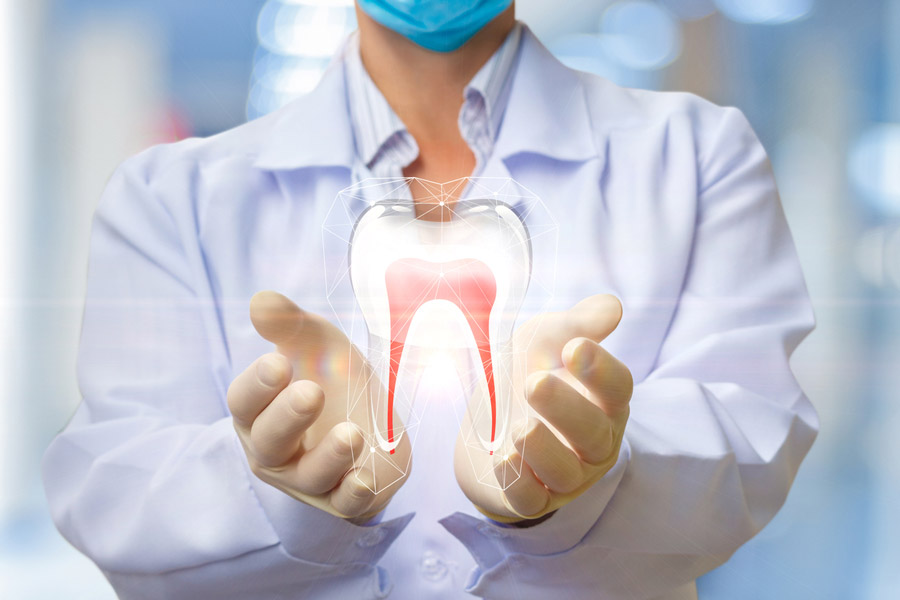Do Dental Implants Hurt? 9 Myths About Tooth Implants
 The medical industry is one that has never shied away from change. From specialist doctors like neurosurgeons to the general medical personnel found in the everyday hospital to dentists. Each field undergoes a reasonable amount of change each year as a result of the new technology that helps them do their jobs faster and better.
The medical industry is one that has never shied away from change. From specialist doctors like neurosurgeons to the general medical personnel found in the everyday hospital to dentists. Each field undergoes a reasonable amount of change each year as a result of the new technology that helps them do their jobs faster and better.
This innovation can also be seen in the oral industry, where for years the only option available to people suffering from tooth loss was to fix dentures within their mouth. However, thanks to the advancements made in the field, there are a host of other options available, including the leading choice today, dental implants.
There are still several people pushing back against this form of treatment thanks to some myths they have been told about the procedure. Do dental implants hurt? Can they really give you your smile back? Is your oral hygiene up to par? Should you really consider implant dentistry to restore your teeth and smile?
This article contains a list of all the myths you may have heard regarding tooth implants and the facts you should know instead.
Myth 1: Your Dental Implants Will be Noticeable by Other People:
Among the many benefits, one of the good things brought by dental implants is how hard it is to detect by people because of how closely they resemble normal and natural teeth. For most people, the teeth are so hard to detect, other people don’t even notice unless they are told explicitly that they had dental implants.
Myth 2: Your Dental Implants Will Make You Uncomfortable:
A lot of people avoid dental implants because they have been made to believe they are painful to have in the mouth. But the truth of the matter is that the majority of these implant patients have spoken out to say the procedure was simpler and less painful than they imagined and expected. During the procedure, the use of anesthesia is required to prevent any pain from being felt, but you may also be exposed to nitrous oxide to reduce anxiety and discomfort further. There are several different options you can discuss with your doctor if you are still a little uneasy about the process.
Myth 3: The Recovery Time of Your Implants is Not Worth it:
Depending on the patient, the time required for complete healing after the procedure ranges. It typically falls somewhere between three to twelve months with twelve months being reserved for the most extreme and extensive cases. The healing time is so that the dental implant root can bond adequately to the bone to provide for complete adhesion.
Myth 4: Your Dental Implants are Very Expensive:
Although dental implants cost more than some other teeth restoration techniques, they tend to provide a lot more value in the long run. For example, if you are missing most or all of your teeth, opting for a few dental implants can help anchor a full fixed arch of replacement teeth, making this not only the most comfortable and aesthetic solution but it can help you preserve your future oral health by reducing bone degradation and loss.
But the real bargain for dental implants is revealed in the long run where you realize they are less expensive than bridges or dentures. Bridges have a shelf life of 10 – 15 years and dentures need to be relined every year or two. But with the implants, you can have them for life with the right care. And if you sum up these costs over your expected lifespan, you can see how much money you would be saving by choosing to get dental implants.
But be careful not to make a decision only on price. Other factors like the skill of the surgeon performing the procedure and the quality of the implant material being used must be factored in before the final decision can be made.
Myth 5: Dental Implants Require a lot of Maintenance:
A lot of people believe taking care of their dental implants require a lot more time they would have used if they were caring for their normal teeth, but the opposite of that myth is the truth. Dental implants can and should be treated like any other tooth. You can care for them by brushing and flossing,and you can eat whatever you want to without having to worry about any repercussions on your teeth.
Myth 6: Any Dentist Can Perform Your Implant Surgery:
This myth is somewhat true because as long as you have a valid license, you have the legal right to perform a dental implant surgery. However, not every dentist that does these implants has the necessary training to do so. The difference between having your surgery done by a trained professional over someone who was not trained is clear,and it could be what makes the difference in your surgery. So, that dentist you found in the cobwebbed corner of the internet with zero reviews may not be the best person to do perform your dental implant procedure.
Myth 7: You Must be in Perfect Health to have the Surgery:
The main factor needed for a successful dental implant procedure is to have a sufficient amount of healthy bone to support the dental implants being put in. But if you do not, this does not rule you out completely as you can be a beneficiary of bone grafting. Patients with conditions like diabetes, high blood pressure, or bleeding disorders are at risk of having a complicated surgery,but the risks can be managed properly by the right medical personnel.
Of course, any oral issue like gum disease needs to be dealt with before the surgery even begins.
Myth 8: There is a High Chance of Your Surgery Failing:
As opposed to what the myth says, the failure rates for dental implants are very low. The implants, which are made of bio compatible titanium, are almost impossible for the body to reject and a very little number of implants fail to osseo integrate with the jawbone. Across the board success rates currently sits at 95% but a skilled implant dentist can have success rates of 98% upwards.
Myth 9: All Dental Implants Treatments are the Same:
Not all dentists are the same, and each dentist handles the implant process differently from the next doctor. Pay attention to dentists who offer very cheap prices because they could be using lower standards of implants and components.
Before committing to a dentist, take time out to review their profile and read testimonials, reviews,and complaints.
Relate Posts to Read:
My Tooth Hurts When I Walk: Causes and Treatment
Medically Fact-Checked & Written by Our Dental Editorial Team
You can read more about our editorial guidelines by clicking this link and learn more about the Emergency Dentists USA editorial team here.


